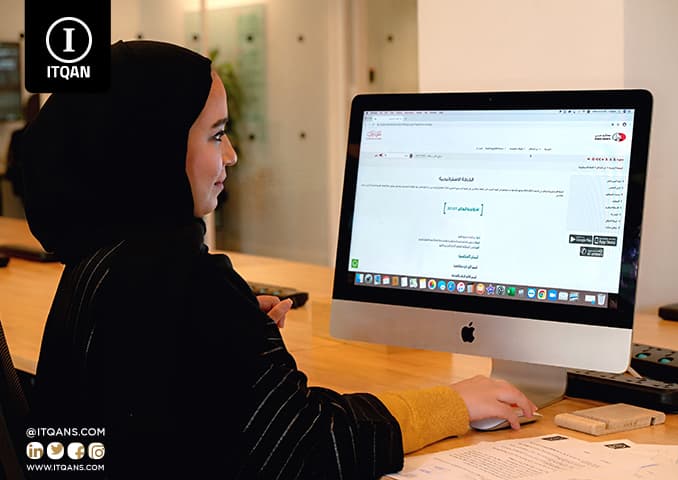Dubai is considered one of the most prominent investment destinations in the world, thanks to its advanced infrastructure, solid legal system, and encouraging business environment. If you are thinking about establishing a company in Dubai, you are heading towards a business environment full of opportunities and potential. Dubai, thanks to its strategic location that connects the continents of the world, offers startups and global investors the opportunity to access multiple markets in the Middle East, Asia and Africa.
Establishing a company in Dubai is not just a step towards entering a dynamic and growing market, it is also an investment in an environment that provides multiple advantages that support business growth. Dubai’s system is flexible, allowing investors to choose from a wide range of establishment options, including free zones and commercial zones. These options offer unique advantages such as tax exemptions, ease of procedures, customization of facilities and modern infrastructure.
Dubai is also considered a global financial center thanks to its hosting of a number of major financial institutions and regulatory bodies that contribute to business stability and enhance confidence in the financial system. In addition, Dubai’s commitment to developing the business environment by improving laws and procedures makes it an attractive place to start any type of business activity.
In this article, we will discuss the steps for establishing a company in Dubai in detail, focusing on the basic aspects that every investor must take into consideration to achieve success in this promising market. We will also review the unique advantages that Dubai offers investors, making it the ideal destination for business and expansion.

جدول المحتوى
ToggleHow to establish a company in Dubai
To establish a company in Dubai , there are basic steps that must be followed. Here is an overview of these steps:
- Choose the type of company: Select the type of company you wish to establish, whether it is a limited liability company (LLC), a public joint stock company, a joint liability company, or another.
- Choose a Business: Choose the business your company will do. The activity must be consistent with the activities permitted in Dubai.
- Determine location: Decide whether you will establish your company in a free zone or a non-free zone. Each region has its own requirements.
- Preparing documents: Prepare all required documents such as passport, residence visas (if required), articles of incorporation, and partner information.
- Registration with the competent authorities: Submit your application to the Department of Economic Development (DED) or the responsible body in the relevant free zone. This includes submitting the application and paying the prescribed fees.
- Obtaining a commercial license: After registering your company, you will need to obtain the necessary commercial license to practice your activity.
- Opening a bank account: Open a bank account in the name of the company in one of the approved banks in Dubai.
- Office Rental: Rent an office or workspace that suits your company’s needs.
- Registration with local authorities: Register the company with the tax authority and other relevant bodies if there is a need to do so.
- Comply with Local Laws: Make sure your company complies with all local labor and employment laws and regulations.
Types of legal entities available for establishing a company in Dubai
Here is a table showing the types of legal entities available to establish a company in Dubai:
| Type | Description | Features | Disadvantages |
|---|---|---|---|
| Limited Liability Company (LLC) | A limited liability company offers legal protection for shareholders’ assets. | Flexibility in establishment, limited liability, suitable for small and medium companies. | Requires 51% local partner, restrictions on number of partners. |
| Public joint stock company | A company with shares that can be traded on financial markets, often reserved for large companies. | Ability to raise significant capital, does not need a local partner. | Complex procedures, strict legal requirements. |
| Private joint stock company | A company with shares that cannot be traded in financial markets, and is considered a flexible option for large companies. | Do not need a local partner, flexibility in structure. | Complexity in procedures, more legal requirements than LLC. |
| Joint company | A company owned by partners who share full responsibility for the debts. | Flexibility in business management, you do not need a local partner. | Unlimited liability, high legal risk. |
| Sole Proprietorship | A company owned by one individual who is responsible for all of its obligations. | Easy to establish, limited liability. | It is owned by one individual, which means complete liability for the debts. |
| Free zone company | A company established in free zones in Dubai, providing special benefits to investors. | Tax exemptions, full ownership by foreigners, ease of establishment. | Restrictions on practicing activity outside the free zone. |
| Limited liability company with low capital | A corporation that requires less capital than traditional LLCs. | Low establishment cost, suitable for small businesses. | Restrictions on business volume and activities. |
You can choose the legal entity that best suits your business needs and investment goals.
Costs of establishing a company in Dubai
The costs of setting up a company in Dubai vary based on the type of company, location, and business activity. Here’s an overview of the main costs you may face:
- Registration and licensing fees: These include the official registration fees for the company and obtaining a commercial license from the competent authority. Fees depend on the type of license and business activity.
- Office or workspace costs: Includes office or commercial space rental costs, which vary based on location and size of the office.
- Legal consulting fees: You may need legal consulting services to help you prepare legal documents and register the company.
- Bank account opening costs: These include the fees associated with opening a bank account in the company’s name at a bank.
- Government Fees: There may be additional fees related to work permits, visas, and document renewals.
- Other costs: Includes other costs such as employee medical examinations, translation services, and furniture and equipment costs.

Taxes applied to companies in Dubai
As of the time of writing this article, Dubai is considered one of the global destinations that offer a favorable tax environment for businesses. Here is an overview of the taxes applicable to companies in Dubai:
- Free Zone Companies: Companies operating in Dubai’s free zones usually benefit from full tax exemptions on profits, according to the laws in force in those zones.
- Companies not operating in free zones: Companies not operating in free zones may be obligated to pay corporate tax, but in most cases corporate tax is low or non-existent.
- Value Added Tax (VAT): A value added tax (VAT) of 5% applies to most goods and services. Companies that exceed a specified threshold of annual revenues are obliged to register themselves for VAT and collect and pay the tax.
- Customs duties: Customs duties applied to some imported goods, which vary based on the type of goods and suppliers.
- Personal income tax: There is no tax on the income of individuals in Dubai, including the income of directors and employees. This excludes any income that may be considered to be from foreign sources, according to the laws of the country in which the income is earned.
- Other local taxes: There may be other local fees related to licensing, rents, and registration, which vary based on the type of company and activity.
- Real Estate Taxes: There is a real estate transaction tax registration fee that may apply when buying or selling real estate.
At the conclusion of our article about establishing companies in Dubai , it becomes clear that this city is not only considered a major business destination in the Middle East, but also a strategic platform for global expansion. Dubai offers a dynamic and innovative business environment, characterized by its flexibility and speed of procedures, which greatly contribute to facilitating the process of establishing companies.
The simplified and flexible procedures for establishing companies in Dubai are one of the most prominent factors that make it a preferred destination for investors and entrepreneurs. Whether you are planning to launch a new project in one of the specialized free zones or in the traditional commercial areas, Dubai provides options that meet various business needs. Through fast licensing, tax breaks and other benefits, Dubai enhances the chances of success and growth for its companies.
Moreover, Dubai’s commitment to developing its modern infrastructure and offering an integrated business environment makes it an ideal place to achieve business goals. The city provides an advanced infrastructure that includes business centers, logistical facilities, and digital facilities that contribute to enhancing the efficiency of business operations.
The most frequently asked questions about establishing a company in Dubai
Is it possible to open a bank account for a company without having a physical headquarters?
Some banks may require a physical headquarters, while others can accept applications from companies in free zones.
What is the minimum capital required to establish a company in Dubai?
The minimum capital varies based on the type of company and activity, but some companies can start with low capital.
Do I need to submit a business plan to establish the company?
While not mandatory, submitting a business plan can help speed up procedures and obtain approvals.
Are there restrictions on certain activities in Dubai?
Yes, some activities require special licenses or may be prohibited based on local regulations.
What are the steps to renew a commercial license?
Apply to renew the license, pay the fees, and submit the required documents before the current license expires.


















